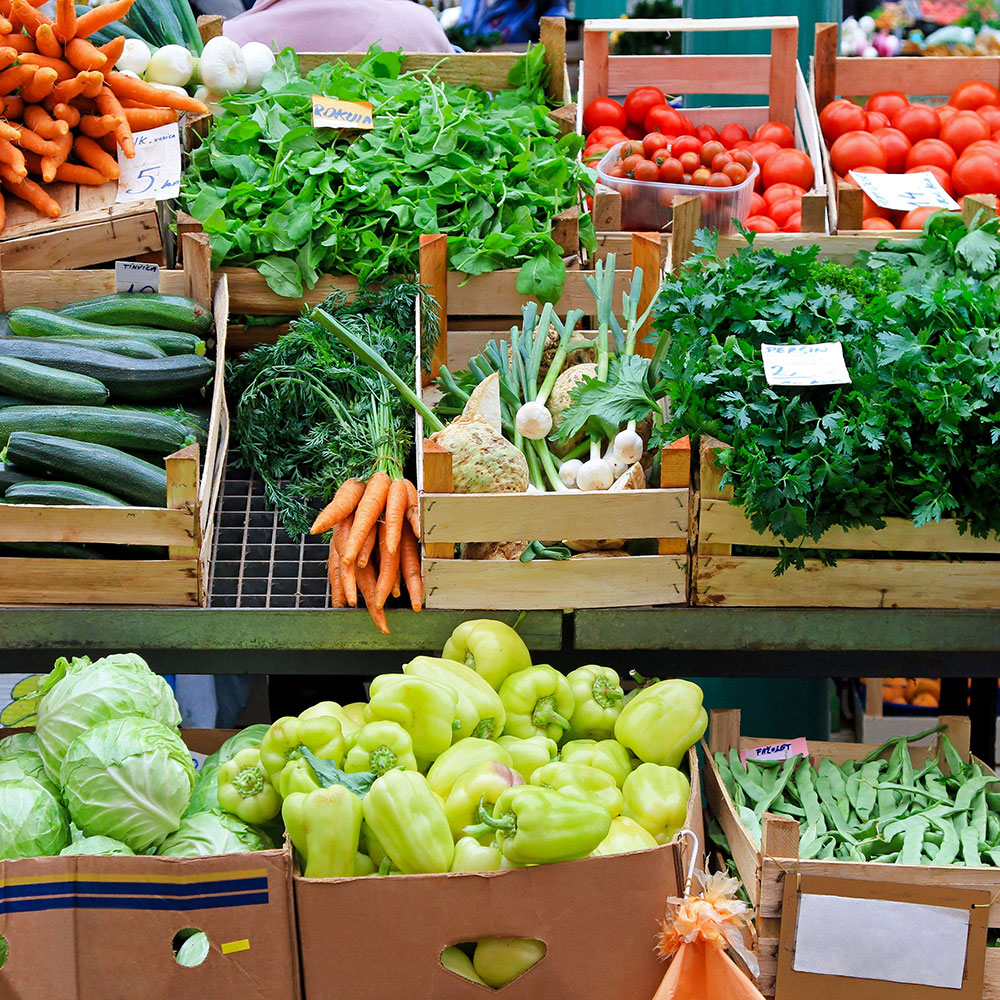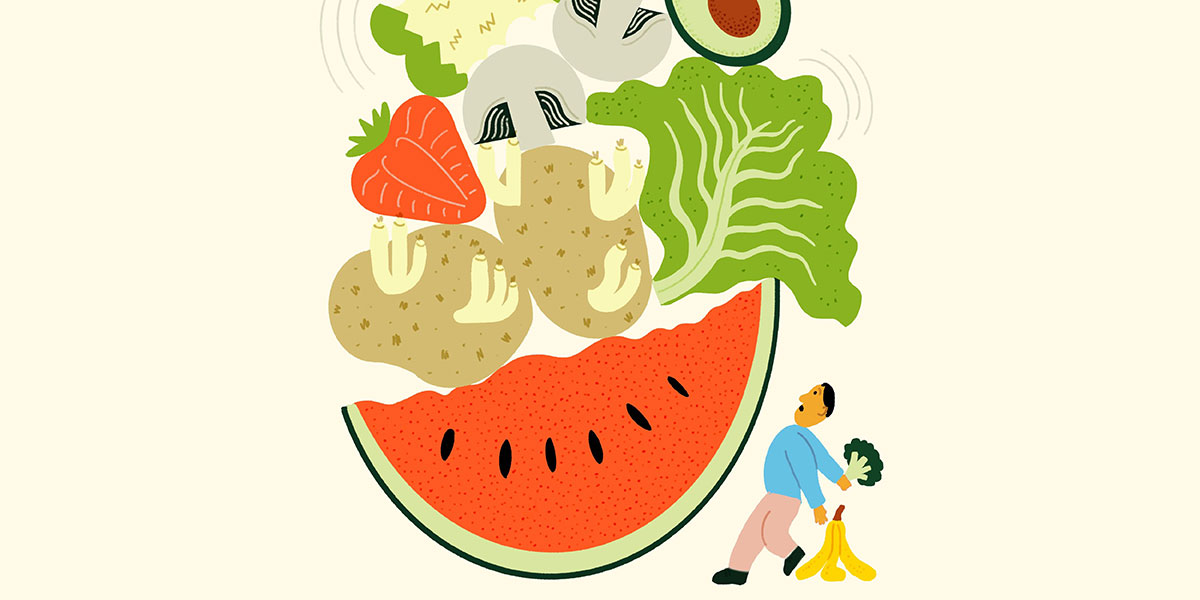Dear Colleagues,
Summer is in full swing! Heck, it feels like it’s almost over…
Per usual, many things that got me excited this month, here are some highlights:
- The brilliant and thoughtful Regina Anderson, Executive Director, Food Recovery Network, published “Volunteering Alone Will Not Save Us” for Blue Avocado. She explains that relying on volunteering and the nonprofit sector alone cannot effectively address food insecurity and poverty in the United States, calling for structural changes in society, including a higher minimum wage, healthcare reform, and other government-driven solutions, to tackle the root causes of hunger and economic inequality.
- The Zero Food Waste Coalition released a new toolkit titled “Achieving Zero Food Waste”, which presents a diverse set of state policies to combat food waste. This comprehensive publication covers each policy in detail, providing background information, rationale, federal legislation context, best practices, and an example of a state law that embodies these practices.
- My fellow women cultivating sustainable food systems gal, Shayna Harris, and her partner Noramay Cadena of Supply Change Capital closed on its first fund with $40 million in capital commitments. The fund aims to support startups and companies that are working on innovative solutions to address challenges in the food industry and promote sustainability, with a particular focus on reducing greenhouse gas emissions and improving supply chain efficiency.
From the Littlefoot world:
- We hosted a webinar sharing tips to develop an effective foodservice sales strategy for emerging brands with my husband and sales expert, Ray Goulbourne. Watch the full discussion here.
- I’ve officially launched my mentorship and professional leadership package! In this exclusive program, you’ll have the unique opportunity to work directly with me, leveraging my 16 years of experience driving change within the food industry. Together, we’ll embark on a dedicated 3-month sprint engagement to brainstorm, strategize, and ignite your next purpose-driven career move within the food, climate, and/or philanthropy space. My goal is to empower you with the knowledge, skills, and insights needed to excel in your chosen field (or help you find said chosen field…) Learn more here or email me to sign up. Spots are limited to ensure you have a high quality experience.
- I am now a proud member of the National Network of Consultants to Grantmakers. Joining this network complements my strategic focus to better support capital deployment for food and climate solutions, acknowledging that philanthropists and foundations are a critical part of this equation.
As always, I am interested to know what’s going on in your world and how I can support you.
Yours in partnership,
Eva
Contact me via our website.
Did a friend forward you this email? Subscribe here.

What I’m Reading
NYC Makes it Mandatory for Residential Buildings to Recycle Food Waste – City Limits
New York City has passed a new law that requires all residential buildings to recycle their food waste. The measure aims to reduce the amount of organic waste sent to landfills and aligns with the city’s sustainability efforts to promote recycling and waste reduction.
How Albert Heijn’s produce supplier is using AI to reduce strawberry waste – The Packer
A supplier for Albert Heijn, a supermarket chain in the Netherlands, is using AI technology to reduce strawberry waste. By predicting demand and analyzing factors that affect shelf life, the AI system helps optimize the supply chain and minimize waste, contributing to more sustainable practices in the produce industry.
Who drives sustainable food choices? Exploring roles of legislation, consumers and businesses – Food Ingredients First
This article explores the various factors that influence sustainable food choices and examines the roles of legislation, consumers, and businesses in driving these decisions. It discusses how government regulations, consumer preferences, and corporate sustainability initiatives all play crucial roles in shaping the food industry’s efforts towards more sustainable practices.
Mintel report finds US consumers have ‘strong sense of culpability’ on climate change, scrutinize carbon offsets – Food Navigator
According to a Mintel study, US consumers feel a strong sense of responsibility for climate change and closely scrutinize carbon offsets. The research highlights that consumers are increasingly concerned about the environmental impact of their choices and are seeking more transparent and effective solutions to address their carbon footprint.
Letter from the great food fight – AgFunder News
Louisa Burwood-Taylor discusses the growing divisions within the agrifoodtech industry, where different groups are advocating for their specific approaches to solving climate and social problems related to food production. She signs the letter off with a call for action for more collaboration and open-mindedness among these factions to achieve systems-level transformation and address the challenges effectively.
How New Season’s upcycling efforts are saving money, reducing food waste – GroceryDive
New Seasons, a grocery retailer, is implementing upcycling initiatives to save money and reduce food waste. By repurposing surplus and imperfect produce into new products like soups and juices, the company is making sustainable efforts while cutting down on waste and costs.
The Evolving Role of Chief Sustainability Officers – Harvard Business Review
This article highlights how the responsibilities and roles of Chief Sustainability Officers are changing, becoming increasingly strategic leaders, driving sustainability efforts across all aspects of the business, and playing a critical role in shaping a company’s environmental and social impact, as well as its long-term success.
THE STATE OF FOOD SECURITY AND NUTRITION IN THE WORLD 2023: Key messages – FAO
This report by the FAO discusses global hunger and food security issues, highlighting the prevalence of undernourishment and food insecurity in different regions. It emphasizes the importance of addressing these challenges through innovations, policy approaches, and investments that consider the rural-urban continuum to ensure access to affordable and healthy diets for all.
Food Systems Innovation Framework – WWF
WWF’s “RIGHT INNOVATION, RIGHT IMPACT, RIGHT PLACE” report emphasizes closing gaps in national-level food systems transformation plans to address nature and climate crises, highlighting the significance of innovation in this process. This study and framework aim to rigorously assess innovations for specific contexts, ensuring the most impactful solutions are implemented swiftly.

